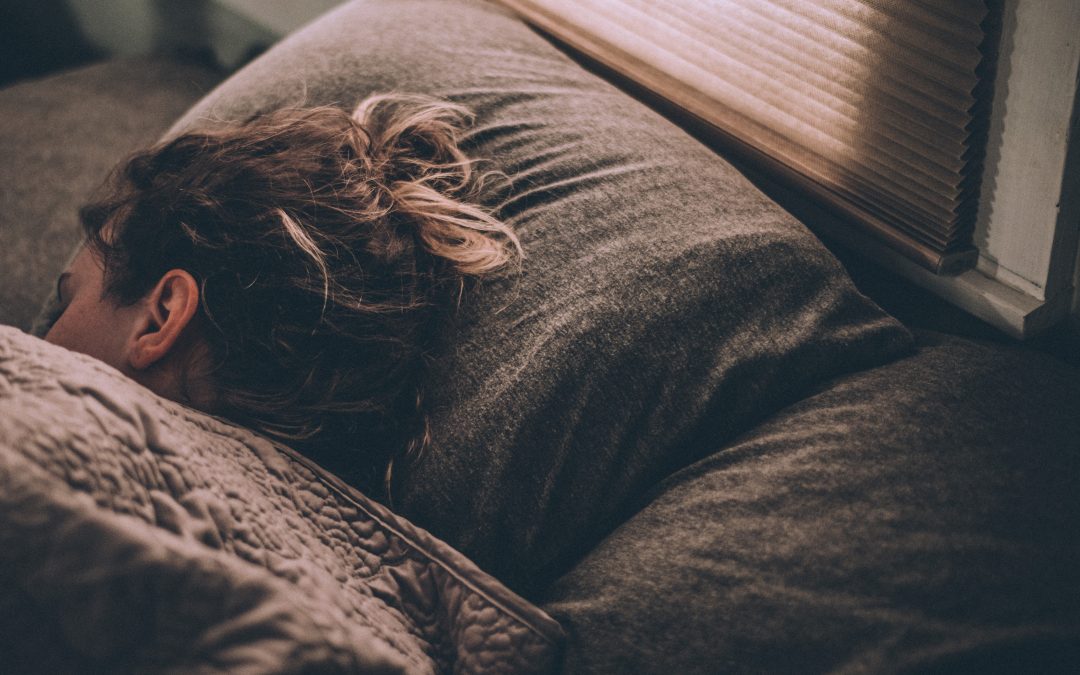Did you know that the hours you sleep at night could affect your hormone balance, your thyroid, adrenals, and even your sex hormones?
For women close to menopause, this relationship becomes even more important. According to the Sleep Doctor, menopause is driven by the decline in the production of hormones, which include estrogen, progesterone, and testosterone. All of these hormones work together to help regulate your reproductive cycle and your menstrual cycle. These hormones also affect your mood, your energy, your sexual drive, your cognitive and emotional abilities and especially your sleep.
Sleep problems not only impact menopausal women, but also reported to be the case for those women in pre-menopause and perimenopause stages.
During a woman’s reproductive years, the hormonal balance shifts. Changes and fluctuations in estrogen, progesterone and other hormones can cause recurring sleep problems. This can occur well before any menopausal activity begins.
For pre-menopausal women in their 20s and 30s, fluctuating estrogen and progesterone before menstruation can cause difficulty sleeping, headaches, cramping, anxiety, and all symptoms of PMS.
Peri-menopausal women in their late 30s or 40s also begin to experience sleep problems when their levels of estrogen, progesterone, and testosterone start to decline. Estrogen levels especially can cause a myriad of symptoms, ranging from hot flashes and night sweats to anxiety and headaches. All of this can obviously interfere with sleeping habits.
For postmenopausal women, anyone who has gone for a year without a period, this interaction is even stronger. The sleep-friendly hormone progesterone is no longer produced, causing a variety of sleep problems.
While a woman in this age range may still be producing estrogen, the levels are also very low. As a result of these low levels, a woman may experience hot flashes, headaches, and even physical pain that can keep them from getting a good night’s sleep.
According to a survey done in 2017 by the CDC, sleep problems tend to significantly increase for peri-menopausal women. According to some studies, more than half of women over 40 sleep less than 7 hours a night on average. That’s a big difference when compared to only 1/3 of pre-menopausal women, who tend to sleep less than 7 hours a night.
According to the CDC survey, sleep issues continue to be bothersome during the postmenopausal years as well.
- 5 percent of postmenopausal women sleep less than 7 hours a night, four or more night per week.
- 1 percent of postmenopausal women have trouble on a regular basis falling asleep and 35.9 percent report having routine difficulty staying asleep during the night.
- More than half, 55.1 percent of these women slept so poorly that they awoke feeling tired, and not well rested, four or more times a week.
With the lack of sleep, it often then linked to overworked adrenal hormones and thyroid hormones which in return cause low energy. It becomes an endless loop cycle.
Sleep and Your Sex Life
Lack of sleep can also cause a lack in the sex drive, especially for women over 40. Sleep deprivation can impact every area of your sexual health, from your hormone levels to your sense of emotional well-being in a relationship, including your desire and libido.
According to Dr. Robert D. Oexman, Director of the Sleep to Live Institute:
“Chronic sleep deprivation, which can occur even if you get a solid six hours a night (the majority of adults need at least seven), can lower levels of testosterone – the sex drive hormone – in both men and women.”
As a result of a lack of sleep, your hormones and your mojo can get thrown out of whack. The truth is that one bad night’s sleep can have an immediate effect on your sex life. According to a study in The Journal of Sexual Medicine:
“Longer sleep duration was related to greater next-day sexual desire” and “a one hour increase in sleep length corresponded to a 14 percent increase in odds of engaging in partnered sexual activity.”
What this really means is that taking steps to get a good night’s sleep, can help you improve your sex life. A lack of sleep can also wreak havoc with your emotions as well, according to psychologist Michael J. Breus and Psychology Today. According to Michael:
“When the dynamics move away from appreciation and toward more negative feelings as a result of sleep deprivation, couples’ sex lives can also take a serious downturn.”
What this means is you won’t feel as inclined to be amorous if you’re chronically tired. A 2008 poll from the National Sleep Foundation found 20 percent of respondents have sex less often or have lost interest in sex because they are just too tired. If a lack of sexual drive is impacting your life, you may simply need more sleep!
6 Steps to Better Sleep
According to the Mayo Clinic, there are some things you can do to get a better night’s sleep. Follow these simple tips and gauge for yourself how they help.
- Stick to a sleep schedule and try going to bed & getting up at the same time each day
- Pay attention to what you drink and eat.
- Create a restful environment: cooler, quiet & dark bedroom. Avoid screen time where possible.
- Limit naps in the daytime.
- Include physical activity in your daily routine.
- Manage your expectations and worries.
Stress management is key to getting a good night sleep. Try and find some relaxation techniques that work for you. Try our free meditation for relaxation and stress release or simply listening to soft music.
In the end, a lack of sleep can seriously impact your health and your life. If you find that a lack of sleep is affecting your life, try some of these tips and see if they work for you.
The better you take care of yourself and the more sleep you get, the happier and healthier you will be.
References
https://thesleepdoctor.com/2018/01/05/menopause-affects-sleep/
https://www.cdc.gov/nchs/products/databriefs/db286.htm
https://hypothyroidmom.com/a-balancing-act-between-your-adrenals-thyroid-sex-hormones/
https://www.romper.com/p/7-ways-sleep-deprivation-affects-your-sex-life-7932
https://www.mayoclinic.org/healthy-lifestyle/adult-health/in-depth/sleep/art-20048379

